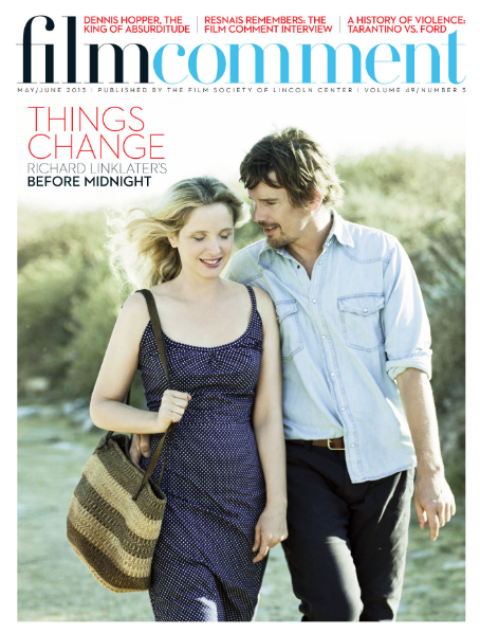
After the frenzied flamenco clapping of ghostly hands against a black void under the opening credits (this is going to be arty) the movie really begins with a series of nighttime shots in a Spanish town. And they’re good, evocative, tingly even: cobblestone plaza seen at a low angle, stark splash of light, a jealous man with a gun, two adulterous lovers shot dead.
We recall here that Jules Dassin, blacklisted American turned Euro-art-house director, once flourished in film noir. The opening to 10:30 P.M. Summer doesn’t quote Dassin’s Night and the City (50) or Thieves’ Highway (49) or anything, but these shots have a crackle that remind us that the man best known at the time (1966) for Never on Sunday (60) and Topkapi (64) knew his way around the haunted shadows of America’s darkest genre.
<em>10:30 P.M. Summer doesn’t roll off the tongue as a title, and it probably doesn’t ring a bell, either. This flop has been overlooked by film history, and the reasons are not difficult to discern: it’s definitely a guest at Pauline Kael’s Come-Dressed-As-the-Sick-Soul-of-Europe Party—pretentious, self-serious, and fatally susceptible to trendy stylistic gestures churned up in the wake of Antonioni, Fellini, and Resnais.

And yet, and yet. That opening is punchy and strong. And much of what follows is intriguing in ways that sit side by side with what’s exasperating about the movie. We are in this Spanish town because Paul (Peter Finch) and his alcoholic wife, Maria (Melina Mercouri, Dassin’s wife and muse), are driving to Madrid with their young daughter and their friend Claire (Romy Schneider on the youthful side of her prime), who has been invited on the ride for somewhat mysterious reasons. Trapped in a crowded hotel as police search for the killer, the travelers spend a fraught night waiting out the manhunt, a rainstorm, and their own wayward passions. The following day brings a long, complicated hangover.
In a sequence carried off with Hitchcockian aplomb, Maria looks out from a hotel window during the stormy night. On a balcony her husband engages in a mid-deluge liplock with Claire; on the roof of the building across the way the escaping killer (Julián Mateos) flaps around in a sodden black cape, like a wounded monster. We know at this moment, thanks in part to Mercouri’s Greek-goddess-facing-the-Furies grandeur, that Maria will aid the fugitive’s escape. Which she does, in a series of mostly dialogue-free scenes of passable suspense (whether intentionally experimental or not, the drawn-out business of Maria’s car finding its way through the streets points more toward Kiarostami than Hitchcock).
The movie was adapted by Marguerite Duras from her own novella (Dassin’s also credited on the script). Dassin was originally to produce the movie for his fellow blacklistee Joseph Losey to direct, but the two fell out. (It would’ve been a characteristic picture for this period in Losey’s career, that’s for sure.) The frequency of stilted posing, the enigmatic glances portending that which cannot be said, the business of wondering whether certain moments are reality or dream—all these fix the movie in its era.

But there are moments when Dassin’s sense of craft (he did excel at heist scenes—see Rififi and Topkapi) and the locations and the actors’ specific presences combine to create something genuinely eerie. In her husband’s previous films, Melina Mercouri is all too iconic, a starkly outlined Force of Nature chiseled out of Greek marble; but she’s very human here, warm and wounded, and convincingly ready to slip the bounds of propriety and commit a crime of passion. (Color helps: she’s softer without the black-and-white outlines of Never on Sunday and 1962’s Phaedra.) As Maria pantomimes an attempt at connection with the killer in the car, or as she and Paul run along the plateau outside the town that opens onto a dry vastness for miles beyond them, the movie does fleetingly attain a kind of yawning existential largeness. It isn’t quite the edge-of-oblivion journey in The Sheltering Sky, but it is close.
And the ending? Not cool. Peter Finch running around shouting faintly anticipates William Shatner’s final cries in his memorable cover of “Mr. Tambourine Man.” But the movie’s just evocative enough to make you wonder where Mercouri’s great injured bird has gone, after all, and to regret—well, at least register—her absence.








